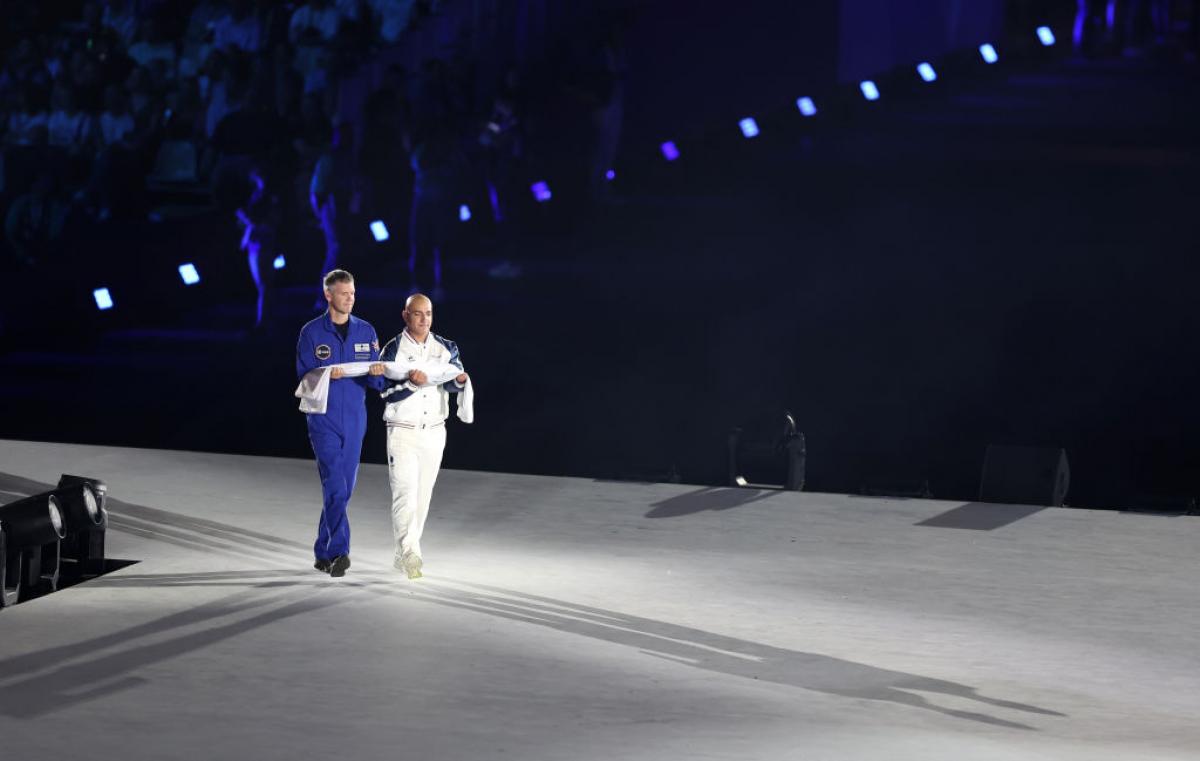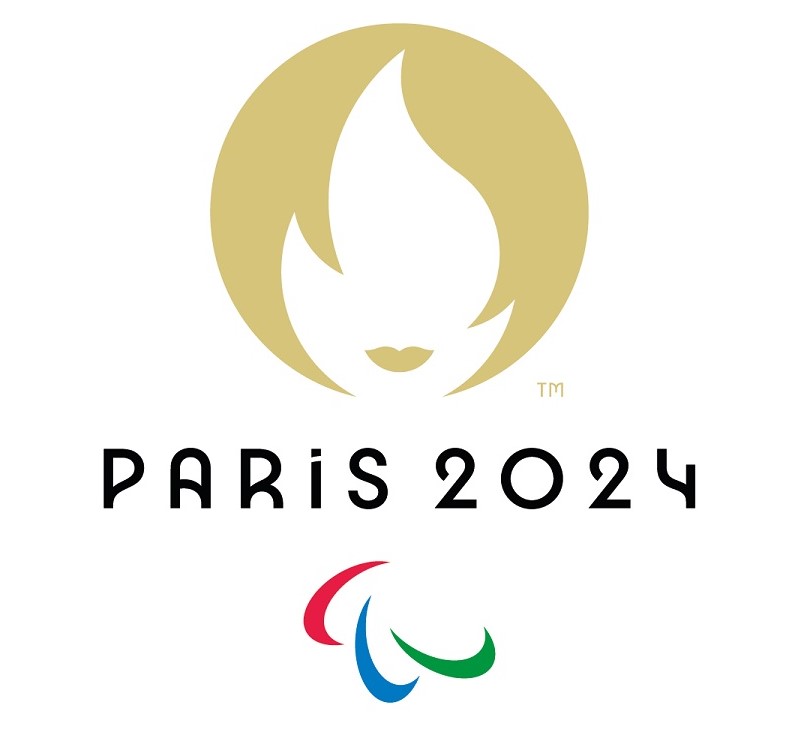Paris 2024: Flagbearer John McFall aims for outer space
Trailblazing astronaut and Beijing 2008 Paralympic bronze medallist John McFall helped raise the Paralympic flag at the Paris 2024 Opening Ceremony 29 Aug 2024
Paris 2024 Paralympic Games Opening Ceremony flagbearer and trailblazing astronaut John McFall has spoken about his role in clearing the way for people with a disability to go into space.
McFall is a member of the European Space Agency (ESA) astronaut reserve, working on the Fly! Feasibility study, which aims to see an astronaut with a physical disability take part in a long duration mission to the International Space Station.
McFall won a bronze medal for Great Britain at the Beijing 2008 Paralympics, and was one of two flagbearers alongside French sailor Damien Seguin who took part in the Paris 2024 Opening Ceremony on Wednesday night.
McFall said: "We are looking at whether it's feasible for someone with a physical disability to go to space and be a professional astronaut. Can I meet all the emergency and safety requirements? Understanding if it's possible.
"Elite athletes are tangentially amazing - you appreciate how difficult it is to get there. With the history of human space exploration, there's an understanding of how difficult it is to get to space. If I get the opportunity to go to space, it will send an incredibly powerful message to humanity about what we are about. That, for me, is very important.
"Space was never on my radar as a kid. I competed in the Paralympics in 2008 because I had a challenge I needed to fulfil inside me. Then I went to my next challenge - medicine and becoming an orthopaedic surgeon.
“This was the same - challenging, adventurous, bold, brave. And it could provide a platform to deliver a very powerful message to humanity."
McFall has also spoken about his role in the spectacular Opening Ceremony at the Place de la Concorde, where he helped to raise the Paralympic flag alongside Seguin.
McFall, whose Paralympic bronze came in the 100m T42, added: “Sixteen years ago I was in Beijing. It was amazing to be back. What I'm doing (at ESA) is because of the success and legacy of the Paralympic movement.
"I won a bronze medal in Beijing, but the medal is not what I focus on. It's nice to come away with a piece of hardware, but it doesn't define my Paralympic experience. From losing my leg to competing in Beijing, I learned so much about myself. I am comfortable in my own skin, and that's what the Paralympic movement is about."









